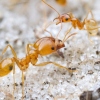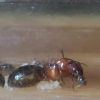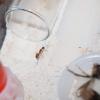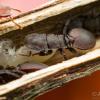- Formiculture.com
- Forums
- Gallery
- Members
- Member Map
- Chat

Exotic ants vs native ants
Started By
AntsTopia
, Dec 29 2022 11:44 AM
debate exotic ants native ants ants ant keeping permits thoughts
24 replies to this topic
#1
 Offline
-
Posted December 29 2022 - 11:44 AM
Offline
-
Posted December 29 2022 - 11:44 AM
This is sort of debate and I want to hear thoughts. Even with permits is it still safe to have a colony that's not active to your area. For instance someone in Ohio has a fire ant colony and has a permit is that still ok? Could that become in issue even with a permit? Want to hear thoughts.
Is it just me that likes the look of ant brood? It just reminds of you how well an ant colony is doing.
#2
 Offline
-
Posted December 29 2022 - 12:02 PM
Offline
-
Posted December 29 2022 - 12:02 PM
Please no. These native vs exotic debates always lead to unnecessary drama on the forum and are usually never civilized. Its a very controversial topic that usually gets out of control rather quickly, similar to threads about AC.
- Chickalo and AntsTopia like this
My journals:
Polyergus Mexicanus: https://www.formicul...gs/#entry175528
Lasius minutus: https://www.formicul...cs/#entry174811
Lasius latipes: https://www.formicul...gs/#entry206449
General acanthomyops journal: https://www.formicul...yops-with-eggs/
Polyergus Mexicanus: https://www.formicul...gs/#entry175528
Lasius minutus: https://www.formicul...cs/#entry174811
Lasius latipes: https://www.formicul...gs/#entry206449
General acanthomyops journal: https://www.formicul...yops-with-eggs/
#3
 Offline
-
Posted December 29 2022 - 12:04 PM
Offline
-
Posted December 29 2022 - 12:04 PM
AC?
Ohh I get it antscanada
Ohh I get it antscanada
Is it just me that likes the look of ant brood? It just reminds of you how well an ant colony is doing.
#4
 Offline
-
Posted December 29 2022 - 12:06 PM
Offline
-
Posted December 29 2022 - 12:06 PM
Soooo what do I do now?
Is it just me that likes the look of ant brood? It just reminds of you how well an ant colony is doing.
#5
 Offline
-
Posted December 29 2022 - 12:21 PM
Offline
-
Posted December 29 2022 - 12:21 PM
But If it gets out of control can't someone just lock the topic??
Is it just me that likes the look of ant brood? It just reminds of you how well an ant colony is doing.
#6
 Offline
-
Posted December 29 2022 - 12:44 PM
Offline
-
Posted December 29 2022 - 12:44 PM
I think is based on the growth and agressiveness of the colony like: invasive species.And no, i don't think it's ok! that's all.This is sort of debate and I want to hear thoughts. Even with permits is it still safe to have a colony that's not active to your area. For instance someone in Ohio has a fire ant colony and has a permit is that still ok? Could that become in issue even with a permit? Want to hear thoughts.
#7
 Offline
-
Posted December 29 2022 - 2:22 PM
Offline
-
Posted December 29 2022 - 2:22 PM
This is sort of debate and I want to hear thoughts. Even with permits is it still safe to have a colony that's not active to your area. For instance someone in Ohio has a fire ant colony and has a permit is that still ok? Could that become in issue even with a permit? Want to hear thoughts.
Ohio is the only thing that is dangerous for RIFA.
- B_rad0806, Chickalo, United-Ants and 2 others like this
#8
 Offline
-
Posted December 29 2022 - 2:57 PM
Offline
-
Posted December 29 2022 - 2:57 PM
True facts.Ohio is the only thing that is dangerous for RIFA.This is sort of debate and I want to hear thoughts. Even with permits is it still safe to have a colony that's not active to your area. For instance someone in Ohio has a fire ant colony and has a permit is that still ok? Could that become in issue even with a permit? Want to hear thoughts.
- Chickalo and United-Ants like this
"The ants are a people not strong, yet they prepare their meat in the summer." Prov. 30:25
Keep ordinary ants in extraordinary ways.
Keep ordinary ants in extraordinary ways.
#9
 Offline
-
Posted December 29 2022 - 3:19 PM
Offline
-
Posted December 29 2022 - 3:19 PM
I didn't mean about Ohio it was just a example.
Is it just me that likes the look of ant brood? It just reminds of you how well an ant colony is doing.
#10
 Offline
-
Posted December 29 2022 - 7:41 PM
Offline
-
Posted December 29 2022 - 7:41 PM
Well good job guys (not sarcastic) you trashed it which in my books and Mantoitbant's is good, cuz now any idiot who comes around this and is on team exotic they won't say anything. Cuz it's trash.
Is it just me that likes the look of ant brood? It just reminds of you how well an ant colony is doing.
#11
 Offline
-
Posted January 3 2023 - 10:21 AM
Offline
-
Posted January 3 2023 - 10:21 AM
Please respect my opinion on this topic, I don't mean any offense to anybody and this is merely just what I think.
I am for Team Exotic, and allow me to explain why.
I've been keeping Ants for nearly two years now, and In that time I've learned a lot about Ant Keeping and people's opinions. 2 years isn't a lot, however,
I can say this. There is no direct issue other than laws in some countries like the United States to buying ants exotically. You could say "You're taking them from their homes!"
Yet, at the end of the day, they have a better chance with the Ant Keeper than in the wild, assuming the Ant Keeper has common sense. If anything, you're doing them a favor.
I also hear a lot about how its bad for the ecosystem. Listen, as long as you don't release the ants into the wild, there are little to no ways for exotic ants to damage the ecosystem.
Even if they do escape or your release them, they can't even become invasive, because assuming you're buying a tropical species, they would die during the winter.
Sure they bring diseases, but as long as you don't release them into the wild, it really doesn't matter.
The next big point I hear about buying exotic ants is the "ant black market." Listen, Ants Canada is HEAVILY exaggerating when he talks about the "blackmarket". We don't have
some secret way of talking or go on the dark web or something like it's a hollywood movie. No, we meet each other online on social media, ask to buy ants, exchange money, and then they ship it to us
from like UPS or something. It's not very secretive, and it can't even be called a "black market" really.
The final big point I hear is the stress during shipping. Listen, in any case, this factor doesn't matter at all really. You can buy native ants, they ship it to you, you buy exotic ants, they ship it to you. It's
all the same at the end. The 2-4 day shipping process won't give the ants a heart attack, and although they might be stressed when they get to you, they'll quickly regain their composure like 90%
of the time.
Now, in order to understand why you even buy exotic ants in the first place, you have to remember, places up north like in Canada don't have the cool weaver ants, honey pot ants, leafcutter ants, etc etc
that places in tropical or sub-tropical regions of the world have. Why would you limit yourself to what you have and quickly get bored within a few years of ant keeping, when you could get exotic ant species
online for a kinda expensive price. That's my real motivation behind buying exotic ants, although I keep none myself.
- antsriondel, United-Ants, AntsTopia and 1 other like this
if you want to get in contact with me, here's my Discord:
Discord: hoth#0177
#12
 Offline
-
Posted January 3 2023 - 4:52 PM
Offline
-
Posted January 3 2023 - 4:52 PM
Please respect my opinion on this topic, I don't mean any offense to anybody and this is merely just what I think.
I am for Team Exotic, and allow me to explain why.
I've been keeping Ants for nearly two years now, and In that time I've learned a lot about Ant Keeping and people's opinions. 2 years isn't a lot, however,
I can say this. There is no direct issue other than laws in some countries like the United States to buying ants exotically. You could say "You're taking them from their homes!"
Yet, at the end of the day, they have a better chance with the Ant Keeper than in the wild, assuming the Ant Keeper has common sense. If anything, you're doing them a favor.
I also hear a lot about how its bad for the ecosystem. Listen, as long as you don't release the ants into the wild, there are little to no ways for exotic ants to damage the ecosystem.
Even if they do escape or your release them, they can't even become invasive, because assuming you're buying a tropical species, they would die during the winter.
Sure they bring diseases, but as long as you don't release them into the wild, it really doesn't matter.
The next big point I hear about buying exotic ants is the "ant black market." Listen, Ants Canada is HEAVILY exaggerating when he talks about the "blackmarket". We don't have
some secret way of talking or go on the dark web or something like it's a hollywood movie. No, we meet each other online on social media, ask to buy ants, exchange money, and then they ship it to us
from like UPS or something. It's not very secretive, and it can't even be called a "black market" really.
The final big point I hear is the stress during shipping. Listen, in any case, this factor doesn't matter at all really. You can buy native ants, they ship it to you, you buy exotic ants, they ship it to you. It's
all the same at the end. The 2-4 day shipping process won't give the ants a heart attack, and although they might be stressed when they get to you, they'll quickly regain their composure like 90%
of the time.
Now, in order to understand why you even buy exotic ants in the first place, you have to remember, places up north like in Canada don't have the cool weaver ants, honey pot ants, leafcutter ants, etc etc
that places in tropical or sub-tropical regions of the world have. Why would you limit yourself to what you have and quickly get bored within a few years of ant keeping, when you could get exotic ant species
online for a kinda expensive price. That's my real motivation behind buying exotic ants, although I keep none myself.
The reasons your bring up are good points. I was hoping this thread would just die, but I guess I'll do my contribution now. The main concern isn't that some Arizona species like Acromyrmex is going to survive a New England winter and ruin our non-existent agriculture. The main concern is that some idiot will import dirt with some tramp species like Solenopsis into a state like Texas and terrorize those agricultural fields (especially after the whole 1956 debacle that caused the ban). However, the USDA doesn't care enough to make a specific blacklist so they just banned all ants. Honestly, I don't really blame them, if I worked in that job I wouldn't care enough to sort thousands of species. The US would have quite a bit more to lose agriculturally wise compared to, say, the UK, who probably spend more money on tea than they make agricultural profit.
Truthfully, coming from someone whose state's winters reach below 5 degrees fahrenheit and has absolutely no interesting ants, I strongly oppose the fact the USDA blacklisted all ants (with one exception). However, it's the law, and I am no law, so as long as that law stands I will stand with it. Of course, there are cases of people bringing ants over state borders and customs just not caring, which honestly checks out, but does that mean you should break the law anyways? No, probably.
My case in point: Don't break the law, even if it's stupid. This ain't no taxation without representation, it's insects.
Edited by Chickalo, January 3 2023 - 4:55 PM.
- AntsTopia likes this
シグナチャーです。예.
#13
 Offline
-
Posted January 3 2023 - 5:42 PM
Offline
-
Posted January 3 2023 - 5:42 PM
Ok you're clearly not an idiot (I apologize if you think I said that about people on team exotic). I meant any aggresive idiot who is on team exotic. You seem well informed on this topic and I agree with you, however Chickalo does have a point. Breaking the law is just bad. And also forget about prison, financing! if the law catches you they'll charge you with a charge of like 2,000 or 5,000 dollars. Itself you ask why I have a honey pot colony, I got this from a shady friend of mine who happens to have a pot queen, so technically I just accepted it and did not pay for it or get it shipped to me. I am not breaking any laws here my friend is so yeah that's why I have have a pot queen. Beside that all my other ant colonies are hand caught or bought from within Florida. Anyway that's pretty much it.Please respect my opinion on this topic, I don't mean any offense to anybody and this is merely just what I think.
I am for Team Exotic, and allow me to explain why.
I've been keeping Ants for nearly two years now, and In that time I've learned a lot about Ant Keeping and people's opinions. 2 years isn't a lot, however,
I can say this. There is no direct issue other than laws in some countries like the United States to buying ants exotically. You could say "You're taking them from their homes!"
Yet, at the end of the day, they have a better chance with the Ant Keeper than in the wild, assuming the Ant Keeper has common sense. If anything, you're doing them a favor.
I also hear a lot about how its bad for the ecosystem. Listen, as long as you don't release the ants into the wild, there are little to no ways for exotic ants to damage the ecosystem.
Even if they do escape or your release them, they can't even become invasive, because assuming you're buying a tropical species, they would die during the winter.
Sure they bring diseases, but as long as you don't release them into the wild, it really doesn't matter.
The next big point I hear about buying exotic ants is the "ant black market." Listen, Ants Canada is HEAVILY exaggerating when he talks about the "blackmarket". We don't have
some secret way of talking or go on the dark web or something like it's a hollywood movie. No, we meet each other online on social media, ask to buy ants, exchange money, and then they ship it to us
from like UPS or something. It's not very secretive, and it can't even be called a "black market" really.
The final big point I hear is the stress during shipping. Listen, in any case, this factor doesn't matter at all really. You can buy native ants, they ship it to you, you buy exotic ants, they ship it to you. It's
all the same at the end. The 2-4 day shipping process won't give the ants a heart attack, and although they might be stressed when they get to you, they'll quickly regain their composure like 90%
of the time.
Now, in order to understand why you even buy exotic ants in the first place, you have to remember, places up north like in Canada don't have the cool weaver ants, honey pot ants, leafcutter ants, etc etc
that places in tropical or sub-tropical regions of the world have. Why would you limit yourself to what you have and quickly get bored within a few years of ant keeping, when you could get exotic ant species
online for a kinda expensive price. That's my real motivation behind buying exotic ants, although I keep none myself.
Edited by AntsTopia, January 3 2023 - 5:48 PM.
Is it just me that likes the look of ant brood? It just reminds of you how well an ant colony is doing.
#14
 Offline
-
Posted January 3 2023 - 11:32 PM
Offline
-
Posted January 3 2023 - 11:32 PM
Please respect my opinion on this topic, I don't mean any offense to anybody and this is merely just what I think.
I am for Team Exotic, and allow me to explain why.
I've been keeping Ants for nearly two years now, and In that time I've learned a lot about Ant Keeping and people's opinions. 2 years isn't a lot, however,
I can say this. There is no direct issue other than laws in some countries like the United States to buying ants exotically. You could say "You're taking them from their homes!"
Yet, at the end of the day, they have a better chance with the Ant Keeper than in the wild, assuming the Ant Keeper has common sense. If anything, you're doing them a favor.
I also hear a lot about how its bad for the ecosystem. Listen, as long as you don't release the ants into the wild, there are little to no ways for exotic ants to damage the ecosystem.
Even if they do escape or your release them, they can't even become invasive, because assuming you're buying a tropical species, they would die during the winter.
Sure they bring diseases, but as long as you don't release them into the wild, it really doesn't matter.
The next big point I hear about buying exotic ants is the "ant black market." Listen, Ants Canada is HEAVILY exaggerating when he talks about the "blackmarket". We don't have
some secret way of talking or go on the dark web or something like it's a hollywood movie. No, we meet each other online on social media, ask to buy ants, exchange money, and then they ship it to us
from like UPS or something. It's not very secretive, and it can't even be called a "black market" really.
The final big point I hear is the stress during shipping. Listen, in any case, this factor doesn't matter at all really. You can buy native ants, they ship it to you, you buy exotic ants, they ship it to you. It's
all the same at the end. The 2-4 day shipping process won't give the ants a heart attack, and although they might be stressed when they get to you, they'll quickly regain their composure like 90%
of the time.
Now, in order to understand why you even buy exotic ants in the first place, you have to remember, places up north like in Canada don't have the cool weaver ants, honey pot ants, leafcutter ants, etc etc
that places in tropical or sub-tropical regions of the world have. Why would you limit yourself to what you have and quickly get bored within a few years of ant keeping, when you could get exotic ant species
online for a kinda expensive price. That's my real motivation behind buying exotic ants, although I keep none myself.
The reasons your bring up are good points. I was hoping this thread would just die, but I guess I'll do my contribution now. The main concern isn't that some Arizona species like Acromyrmex is going to survive a New England winter and ruin our non-existent agriculture. The main concern is that some idiot will import dirt with some tramp species like Solenopsis into a state like Texas and terrorize those agricultural fields (especially after the whole 1956 debacle that caused the ban). However, the USDA doesn't care enough to make a specific blacklist so they just banned all ants. Honestly, I don't really blame them, if I worked in that job I wouldn't care enough to sort thousands of species. The US would have quite a bit more to lose agriculturally wise compared to, say, the UK, who probably spend more money on tea than they make agricultural profit.
Truthfully, coming from someone whose state's winters reach below 5 degrees fahrenheit and has absolutely no interesting ants, I strongly oppose the fact the USDA blacklisted all ants (with one exception). However, it's the law, and I am no law, so as long as that law stands I will stand with it. Of course, there are cases of people bringing ants over state borders and customs just not caring, which honestly checks out, but does that mean you should break the law anyways? No, probably.
My case in point: Don't break the law, even if it's stupid. This ain't no taxation without representation, it's insects.
I wish I could insert the "Why. Won't! YOU! DIEEEEEEEEEEEE!" meme. Because this thread won't die.
Edited by NicholasP, January 3 2023 - 11:33 PM.
- Chickalo likes this
#15
 Offline
-
Posted January 3 2023 - 11:40 PM
Offline
-
Posted January 3 2023 - 11:40 PM
I'd like to give my two cents. Hopefully I don't loose any respect from any of you all here, but I'm for team exotic.
Now before anyone states that I'm uneducated of the effects of invasives, I study invasive species and have for many many years. From fire ants to zebra mussels. I'm majoring in biology with a specific focus on Conservation (and even more specifically on Invasive species). Transport of any physical object is a risk. Period. You ship that air from Texas and there's a flec of bacteria that could cause environmental destruction, boom, problems,but I want to clarify something about invasives. They aren't as overpowered as people create their image to be. First, what even is an invasive species? Here's a dictionary definition:
An invasive species is an introduced, nonnative organism (disease, parasite, plant, or animal) that begins to spread or expand its range from the site of its original introduction and that has the potential to cause harm to the environment, the economy, or to human health.
Perfect. Now, what is a native species?
A species that originated and developed in its surrounding habitat and has adapted to living in that particular environment.
Now, how does a living organism become native if the environment is in constant dynamic change?
The best example of this is islands. Most islands start out from underwater volcanic activity. They tend to be only solid, inhospitable, razor-sharp rock islands in the beginning that had no life. As time progresses, erosion and weathering break down rock to create a more sustainable environment. The only problem is that there is still no life on that island. So, how do we get life on islands and create these never before seen diversity? Nothing is native when it comes to islands, it all comes from different sources. Seabirds poop out seeds from their places of origin, the seeds die or grow depending on conditions, storms bring debri carrying animals, natural disasters create opportunities for increased diversity, and these organisms adapt to their now-home. They change and evolve, they are isolated. So, the question then lies in this: At what point do these technically non-native/invasive organisms become native?
When they fill a niche or role in the environment. Either by replacement, creation, or by existence. This may cause competition, extinction of other species, or disruptions in the balance (for a short while) but that's a part of natural selection. If you preform your niche better than the preexisting creature, you have the right to live, reproduce, and thrive. And the other creature either dies out or evolves. Competition creates evolution.
Invasive species create biodiversity at the cost of loosing some biodiversity. A big problem I see is that people now a days want the environment to be how it was before we came. That's impossible. We've changed it too much, there's no reverse button to fix our damages. We become attached to what once was and fear the future of what it could become. Now, we humans have created the best living environments for these invasives to settle in and spread. We destroy natural environments, distort it, and expect it to grow back as it was before. These invasives tend to grow and spread SUPER well in places we have distorted. That's why we see them so much, they live close to use because we keep distorting the native part making it easier for the foreign to be established. There's less competition, more resources, and more opportunity. Take Solenopsis invicta for example. It's probably the most studied ant in the world! It came over seas, probably in ships and the wood trade, and took of running. Where? In the most developed and disturbed places first. Where there were less natives.
Now, are invasive species inherently bad for the environment. According to most studies, yes. But that's also the problem, a lot of these studies focus only on the bad effects of them and never on any positive. That is 100% a biased point of view. If you study something, looking only for the bad, you will find it. All living creatures have positive and negative effects to their environment! Salmon feed bears and salmon eat insects. The effect to the bears is positive, the effects to the insects is negative. Where are the studies on the positive effects for invasive species? A little tip, I have found only 4 studies. A study about tamarisk trees providing good shelters for a couple endangered bird species (in which the birds completely replaced their native nesting trees with the invasive tamarisks) is one of them. Another problem being that most of the "environmental" problems caused by invasive species are economical problems! Like Solenopsis invicta killing calves and crops. Last time I checked, cows and crops are not natural. Sure, it is a huge problem because it costs to make up for the damage, I'm not denying that at all. This is conservation of the environment I'm talking about. The economy and hazard to human health I'm putting aside because those have the obvious answers to invasives (being that invasives are bad about 99% of the time).
Next, endangered organisms can become invasive. We have a great example of this with the Cuban Frog! In its native range, it is dying out, it's dying of deforestation. But in its invasive ranges, it spreads and grows! It sheds an interesting light to conservation. That organisms that are in threat of extinction can become invasive. This don't work with all endangered animals sadly, like the green sea turtle in which we are the main threat and their range covers vast oceans. But for a lot of organisms, it is a theoretical solution. (Not saying it's the wisest decision due to organisms being unpredictable).
With all this ranting, I want to make it clear about these few things:
1. I'm not saying we should release invasives to help "save" the environment
2. That not all invasives are inherently good
3. That we shouldn't let native species die out because they are outdated
4. That we shouldn't break federal law because we have different views of what the laws state.
5. That we should all really look at invasive species and find their positives and negatives. We need unbiased studies. All the facts.
Now, to connect this with the topic. I'm for team exotic because of several reasons. The first being that the USDA is scared of a potential escape or release of our precious ants that we spend hundreds on. I'm sorry, but if I have an exotic ant species that I really wanted and spent hundreds on, I would protect those buggers with my life!! They get proper care, proper formicariums that are inescapable and well planned, and I would never EVER want to release them. Sure, there are some people who are dimwitted enough to release a colony. But I'm sure 99% of you would never! On top of that, I'm cool with an agent coming and verifying that I'm doing everything properly. If I had exotics, I would post them on my stories all the time. There would be good record being kept on their activities, etc. (of course that's just me)
Second, the blanket law over all ants (except Pogonomyrmex. occ.) is downright stupid. Heck, if they don't want to shift through thousands of species of ants to see which ones are safe or not because it wastes time and tax dollars, I'll do it for free!!!! I'm serious about that one!
Third, exotics are interesting. Do I even have to point that out? Sure, our native species are fantastic and very rewarding, but once you've kept them all, it can get a bit boring. Sure, there's always new methods to raise and more info to learn about them, but exotics are super rewarding and gives a whole new experience! I was in Mexico and I got the privilege to keep Pogonomyrmex barbatus for the first time. I've never kept the genus before and it was super rewarding!! I learned a mountain ton and I really wished I could bring them back to Virginia, but I know I shouldn't, so I let the go. Now, I have a desire to keep a Pogonomyrmex occ. Colony and try that out! There's just an endless world of experience just waiting to be tried out but for now, it's limited to your own state. I feel really bad for those people who I introduce to the hobby and explain all these super cool ant species and they really get into it and what some but I have to let them down saying that it's illegal without a certain permit that sometimes can be difficult to obtain.
Fourth, it would help the hobby grow! Building off of what I just said, many people get into the hobby looking for some of the commonly idolized species. They get super frustrated finding out that they are limited to their own state and many just give up. Imagine the amount of knowledge we would receive about how to raise these exotics and even finding new methods for our native species. Growth is progress, speed up growth and progress grows exponentially.
And I also second on all the points made by Hothkinstroy and why he's on team exotic.
That's the end of my Ted talk. I will publish my own studies on invasive species in a few years when I shoot for my doctorates, so keep an eye out for that. And if you want to debate/correct anything I've said, feel free to in private messenger so we avoid contention here in the forum😁👉👉. I know my view is not a popular one, but I hope I've made a few of you think and see it in a different perspective. Thank you👍
Now before anyone states that I'm uneducated of the effects of invasives, I study invasive species and have for many many years. From fire ants to zebra mussels. I'm majoring in biology with a specific focus on Conservation (and even more specifically on Invasive species). Transport of any physical object is a risk. Period. You ship that air from Texas and there's a flec of bacteria that could cause environmental destruction, boom, problems,but I want to clarify something about invasives. They aren't as overpowered as people create their image to be. First, what even is an invasive species? Here's a dictionary definition:
An invasive species is an introduced, nonnative organism (disease, parasite, plant, or animal) that begins to spread or expand its range from the site of its original introduction and that has the potential to cause harm to the environment, the economy, or to human health.
Perfect. Now, what is a native species?
A species that originated and developed in its surrounding habitat and has adapted to living in that particular environment.
Now, how does a living organism become native if the environment is in constant dynamic change?
The best example of this is islands. Most islands start out from underwater volcanic activity. They tend to be only solid, inhospitable, razor-sharp rock islands in the beginning that had no life. As time progresses, erosion and weathering break down rock to create a more sustainable environment. The only problem is that there is still no life on that island. So, how do we get life on islands and create these never before seen diversity? Nothing is native when it comes to islands, it all comes from different sources. Seabirds poop out seeds from their places of origin, the seeds die or grow depending on conditions, storms bring debri carrying animals, natural disasters create opportunities for increased diversity, and these organisms adapt to their now-home. They change and evolve, they are isolated. So, the question then lies in this: At what point do these technically non-native/invasive organisms become native?
When they fill a niche or role in the environment. Either by replacement, creation, or by existence. This may cause competition, extinction of other species, or disruptions in the balance (for a short while) but that's a part of natural selection. If you preform your niche better than the preexisting creature, you have the right to live, reproduce, and thrive. And the other creature either dies out or evolves. Competition creates evolution.
Invasive species create biodiversity at the cost of loosing some biodiversity. A big problem I see is that people now a days want the environment to be how it was before we came. That's impossible. We've changed it too much, there's no reverse button to fix our damages. We become attached to what once was and fear the future of what it could become. Now, we humans have created the best living environments for these invasives to settle in and spread. We destroy natural environments, distort it, and expect it to grow back as it was before. These invasives tend to grow and spread SUPER well in places we have distorted. That's why we see them so much, they live close to use because we keep distorting the native part making it easier for the foreign to be established. There's less competition, more resources, and more opportunity. Take Solenopsis invicta for example. It's probably the most studied ant in the world! It came over seas, probably in ships and the wood trade, and took of running. Where? In the most developed and disturbed places first. Where there were less natives.
Now, are invasive species inherently bad for the environment. According to most studies, yes. But that's also the problem, a lot of these studies focus only on the bad effects of them and never on any positive. That is 100% a biased point of view. If you study something, looking only for the bad, you will find it. All living creatures have positive and negative effects to their environment! Salmon feed bears and salmon eat insects. The effect to the bears is positive, the effects to the insects is negative. Where are the studies on the positive effects for invasive species? A little tip, I have found only 4 studies. A study about tamarisk trees providing good shelters for a couple endangered bird species (in which the birds completely replaced their native nesting trees with the invasive tamarisks) is one of them. Another problem being that most of the "environmental" problems caused by invasive species are economical problems! Like Solenopsis invicta killing calves and crops. Last time I checked, cows and crops are not natural. Sure, it is a huge problem because it costs to make up for the damage, I'm not denying that at all. This is conservation of the environment I'm talking about. The economy and hazard to human health I'm putting aside because those have the obvious answers to invasives (being that invasives are bad about 99% of the time).
Next, endangered organisms can become invasive. We have a great example of this with the Cuban Frog! In its native range, it is dying out, it's dying of deforestation. But in its invasive ranges, it spreads and grows! It sheds an interesting light to conservation. That organisms that are in threat of extinction can become invasive. This don't work with all endangered animals sadly, like the green sea turtle in which we are the main threat and their range covers vast oceans. But for a lot of organisms, it is a theoretical solution. (Not saying it's the wisest decision due to organisms being unpredictable).
With all this ranting, I want to make it clear about these few things:
1. I'm not saying we should release invasives to help "save" the environment
2. That not all invasives are inherently good
3. That we shouldn't let native species die out because they are outdated
4. That we shouldn't break federal law because we have different views of what the laws state.
5. That we should all really look at invasive species and find their positives and negatives. We need unbiased studies. All the facts.
Now, to connect this with the topic. I'm for team exotic because of several reasons. The first being that the USDA is scared of a potential escape or release of our precious ants that we spend hundreds on. I'm sorry, but if I have an exotic ant species that I really wanted and spent hundreds on, I would protect those buggers with my life!! They get proper care, proper formicariums that are inescapable and well planned, and I would never EVER want to release them. Sure, there are some people who are dimwitted enough to release a colony. But I'm sure 99% of you would never! On top of that, I'm cool with an agent coming and verifying that I'm doing everything properly. If I had exotics, I would post them on my stories all the time. There would be good record being kept on their activities, etc. (of course that's just me)
Second, the blanket law over all ants (except Pogonomyrmex. occ.) is downright stupid. Heck, if they don't want to shift through thousands of species of ants to see which ones are safe or not because it wastes time and tax dollars, I'll do it for free!!!! I'm serious about that one!
Third, exotics are interesting. Do I even have to point that out? Sure, our native species are fantastic and very rewarding, but once you've kept them all, it can get a bit boring. Sure, there's always new methods to raise and more info to learn about them, but exotics are super rewarding and gives a whole new experience! I was in Mexico and I got the privilege to keep Pogonomyrmex barbatus for the first time. I've never kept the genus before and it was super rewarding!! I learned a mountain ton and I really wished I could bring them back to Virginia, but I know I shouldn't, so I let the go. Now, I have a desire to keep a Pogonomyrmex occ. Colony and try that out! There's just an endless world of experience just waiting to be tried out but for now, it's limited to your own state. I feel really bad for those people who I introduce to the hobby and explain all these super cool ant species and they really get into it and what some but I have to let them down saying that it's illegal without a certain permit that sometimes can be difficult to obtain.
Fourth, it would help the hobby grow! Building off of what I just said, many people get into the hobby looking for some of the commonly idolized species. They get super frustrated finding out that they are limited to their own state and many just give up. Imagine the amount of knowledge we would receive about how to raise these exotics and even finding new methods for our native species. Growth is progress, speed up growth and progress grows exponentially.
And I also second on all the points made by Hothkinstroy and why he's on team exotic.
That's the end of my Ted talk. I will publish my own studies on invasive species in a few years when I shoot for my doctorates, so keep an eye out for that. And if you want to debate/correct anything I've said, feel free to in private messenger so we avoid contention here in the forum😁👉👉. I know my view is not a popular one, but I hope I've made a few of you think and see it in a different perspective. Thank you👍
Edited by VenomousBeast, January 4 2023 - 12:53 AM.
- Chickalo, bmb1bee, United-Ants and 1 other like this
Keeps:
1:Pogonomymex occidentalis
4: Tetramorium immigrans
2 Reticulitermes flavipes
#16
 Offline
-
Posted January 4 2023 - 1:30 AM
Offline
-
Posted January 4 2023 - 1:30 AM
It's a complex issue, really.
People usually tend to think only about the issues of invasive ant species, as well parasites and infections carried by those exotic ants, and then there's the legal component as well. It goes a lot deeper though.
The first thing is transporation. If you love ants, is it really necessary to ship them all across the world? There are quite a few ant species that absolutely HATE being ship and often die during shipping. Carebara diversa is a prime example - they are super picky with nesting conditions, HATE being shipped, rarely arrive healthy and more often than not die within a few months because even many experienced keepers struggle to provide them with the conditions to thrive.
Ants from the same continent that spend like a week in shipping is one thing, but ants from the other end of the world stuck in shipping for weeks is something else. I've seen the images, those queens in their tubes get tossed into boxes by the thousands and if half of them die before arrival it doesn't matter because both the seller and the re-seller are still making bank. The death rate of those ants often simply isn't justifiable.
The next thing is environmental damage and population threat due to collecting. Yes, there are ant species that fly in the billions, like Lasius niger, where even extracting thousands of queens over years won't leave a dent in their population (mostly because the biggest enemy of Lasius niger is actually Lasius niger competing for territory and resources) but there are quite a few species that don't multiply this quickly, don't have this high of a population density and/or are already under environmental pressure - like some species in parts of Africa had very limited to no nuptial flights over the last years because conditions were pretty bad. If commercial ant sellers take out the few queens that are still flying they may put those ants into serious trouble.
Also some collectors don't really care how they are acquiring those queens, they may cause massive damage to an area by turning over thousands of stones and smashing apart thousands of logs just to get to those ants. And this doesn't just affect poor countries, i know of some sellers in central Europe who have extracted thousands of Camponotus queens from their founding chambers, which is not just highly illegal but also causes massive environmental damage because those people, aside from digging up and throwing away thousands of beetles, solitary bees/wasps and other porentially already threatened burrow-digging insects remove a very significant number of fledgling colonies from an area screwing over the local food chain and ecosystem. And yes, it's probably A LOT worse in asian countries like China or Vietnam where people are even less educated and even more unhinged.
And another note about exotics - there is NO FEASIBLE WAY to tell which species will become an invasive threat and which won't. There are various examples of highly invasive species against all odds failing in specific environments (like canadian pondweed in large parts of the meditarranean) but there are also various examples of invasive organisms from all kingdoms - plants, animals, fungi, even protista - nobody had on their radar when they suddenly exploded into a massive issue once they had adapted to their new home (like when yellow-jacket wasps almost collapsed the entirety of New Zealand's forest ecosystems by harvesting so much honeydew from tree aphids that they began to starve out the entire food chain from the bottom).
Ants are pretty high on the threat meter by default because their eusocial trait and their ability to cooperate and shape their environment make them perfect invaders from the get-go. This doesn't mean all ants will become invasive everywhere but chances are higher than for most organisms as their inherent abilities give them better chances than having to rely on finding a perfect niche by sheer luck. They are literally and physically capable of carving out their own niche if necessary.
Edited by Serafine, January 4 2023 - 1:36 AM.
- VenomousBeast, ANTdrew and NicholasP like this
We should respect all forms of consciousness. The body is just a vessel, a mere hull.
Welcome to Lazy Tube - My Camponotus Journal
#17
 Offline
-
Posted January 4 2023 - 1:57 AM
Offline
-
Posted January 4 2023 - 1:57 AM
#18
 Offline
-
Posted January 4 2023 - 6:38 AM
Offline
-
Posted January 4 2023 - 6:38 AM
Imo we should get rid of native ants and only keep exotics
- United-Ants likes this
#19
 Offline
-
Posted January 4 2023 - 9:25 AM
Offline
-
Posted January 4 2023 - 9:25 AM
#20
 Offline
-
Posted January 4 2023 - 11:19 AM
Offline
-
Posted January 4 2023 - 11:19 AM
Imo we should get rid of native ants and only keep exotics
... People really don't know how nature works.
For real lol. We can't just *Poof* and their gone. I'm sorry for reviving this thread, it was dead and I thought posting my opinion wouldn't drag tons of people to this thread. I merely thought a few people would see it, a couple of them would reply, and that would be it. Clearly that wasn't the case though. I'm quite new to Formiculture, so I didn't know posting on a thread would bump it up so much and make so many more people see it, nor did I know this topic is bought up so much. I'd like to formally close this thread with this:
At the end of the day, it is not good to break the law to get exotic ants. No matter what it is, breaking the law is never good. However, if you are willing to take that risk, buying exotic ants is a good option for you. I understand why people don't buy exotics, as they would rather catch queens themselves than have to break the law, and enjoy nature in its fullest. If breaking the law doesn't settle with them well, that's okay too. If its legal to import exotic ants in your country, at the end of the day its just what you want that matters. I hope this topic is never bought up again, and if it is, I hope it is civilized and people from both sides don't bash each other in. Don't call each other stupid, and don't get personal, be civilized and respectful, even when it is difficult.
With this, I'd like somebody to lock the topic just incase people don't listen to me and continue on debating about which side is better.
Thank you,
Hoth (Ants Michigan)
Edited by Hothkinstroy, January 4 2023 - 11:27 AM.
- Chickalo likes this
if you want to get in contact with me, here's my Discord:
Discord: hoth#0177
Also tagged with one or more of these keywords: debate, exotic ants, native ants, ants, ant keeping, permits, thoughts
 |
Ant Keeping →
Ant Keeping Journals →
Strickys Formica JournalStarted by stricky_ants , Jun 21 2025 |
|

|
|
 |
Ants & Myrmecology →
General →
Formica ID, Neararctic species, red/black hueStarted by Stubyvast , Jun 10 2025 |
|

|
|
 |
Ant Keeping →
Ant Keeping Journals →
bmb1bee's Formica Journal (updated 12 Jun. 2025)Started by bmb1bee , Jun 3 2025 |
|

|
|
Ant Keeping →
General Ant Keeping →
Should I be concerned?Started by boxofshovels , May 28 2025 |
|
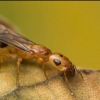
|
||
Ant Keeping →
General Ant Keeping →
Making a terrarium for antsStarted by drziolo , May 17 2025 |
|

|
1 user(s) are reading this topic
0 members, 1 guests, 0 anonymous users


 This topic is locked
This topic is locked



